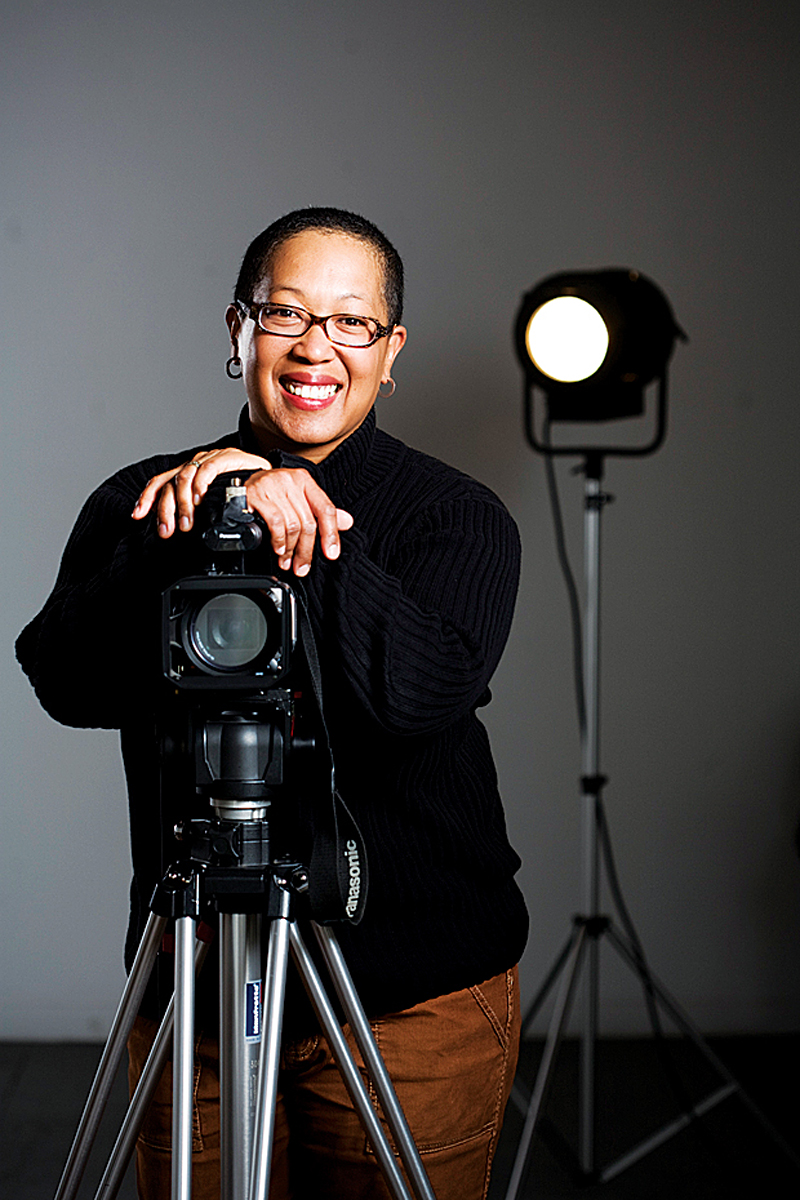Go ahead, try to parse the name of Eliachi Kimaro, a social worker-turned-filmmaker who goes by Eli for short. Before you think to ask about her ethnicity (but don’t, this being too-polite Seattle), she’ll tell you with a smile. She’s even made a documentary about it, A Lot Like You, which recounts how her Tanzanian father and South Korean mother, both economists, met and married in the U.S.
“I didn’t have a whole lot of racial conflict growing up,” Kimaro recalls of her ’70s and ’80s youth in Rockville, Maryland. With her parents working for the World Bank and IMF, the family lived in a “more mixed” environment than the average Washington, D.C., suburb. Only when she went to college in Canada did she realize how some perceived her: “Here, I’m black.” And then the converse: “When I go back [to Tanzania], people think I’m Chinese.”
But, skipping back a few years, A Lot Like You mainly concerns her father’s side of the family in the Chagga tribe and his homeland near Mt. Kilimanjaro. The favored son who won a scholarship to the U.S. at 18, he returned decades later with his young family to teach briefly at the University of Dar es Salaam. Kimaro’s experiences there were not entirely happy, as her film explores. (The family soon returned to the U.S.) After her parents retired in 2002 to live permanently in Tanzania, she became determined to fill in the gaps between prior visits, to interview her aged aunts about “things that people who were raised there wouldn’t think to ask.” Those questions would include “parts that were painful and that I mostly didn’t understand” as a child.
Accordingly, A Lot Like You does include some dark family secrets. But it’s also a celebration of the filmmakers’ parents, Young (her mother) and Sadikiel, two tremendously strong-minded individuals who raised three kids together. Married in 1970, their story is like a happier version of President Obama’s parents’ short marriage. For Young, the daughter of a South Korean government official, marrying a black man may have been an even greater cultural taboo than that faced by Obama’s mother, Stanley Ann Dunham. Kimaro sees the parallels for America’s more mixed-race future: “Definitely with Obama’s story hitting the mainstream . . . this could be the new norm.”
Using a wealth of family photos and home videos, maps and animation, and archival footage from Tanzania’s early post-colonial history, Kimaro explains in A Lot Like You how exceptional it was for her father—one of six children—to be educated abroad. But the film is also her story, with voice-overs culled from her journals during subsequent visits to Tanzania. These continued after her 1996 move to Seattle, where she worked for Seattle Rape Relief and other nonprofits, and after her marriage to a white scientist. As they considered parenthood, she realized, “I was gonna be my kid’s connection to [Tanzanian] culture. That would have to be up to me. My connection to my Tanzanian culture felt very hazy.”
So Kimano and her husband, Thomas Kenney, quit their jobs, took filmmaking classes at 911 Media Arts Center, and lugged their cameras back to her father’s village. “We were just a novice filmmaking crew of two,” says Kimano. “I had no intention of making a huge documentary when I went back there. It evolved into something very different.”
Eighty hours different. With so much footage to digest, she laughs, “The first thing I did was to sign up for an editing class, and Eric Frith was my teacher. That solidified that it wouldn’t just be a home-video project.” Frith, the veteran local editor who cut The Heart of the Game (among many other projects), then signed on to help Kimaro shape her story (now 81 minutes long). He also showed a rough cut to local musician Pete Droge, who supplies the soundtrack.
As a result, A Lot Like You is considerably more polished than your average local documentary. (The $700,000 budget came from Northwest Film Forum, 4Culture, the Washington State Arts Commission, and other grants.) It’s a moving personal essay on family and diversity, but one that also has international themes. Beyond Kimaro’s girlhood trauma, she addresses the lack of female educational opportunities in Tanzania, genital mutilation, and a tribal system that remains stacked against women.
Yet today in Tanzania, Kimaro optimistically sees “a turning tide. I think there [are] better prospects for women. The economy needs them.” And both her parents are now working on village development projects to help Chagga women. She adds with a chuckle, “They failed at retirement!”








